The Swiss National Science Foundation is testing a structured narrative CV format called ‘SciCV’ to increase consistency in decision-making for its grant applications.
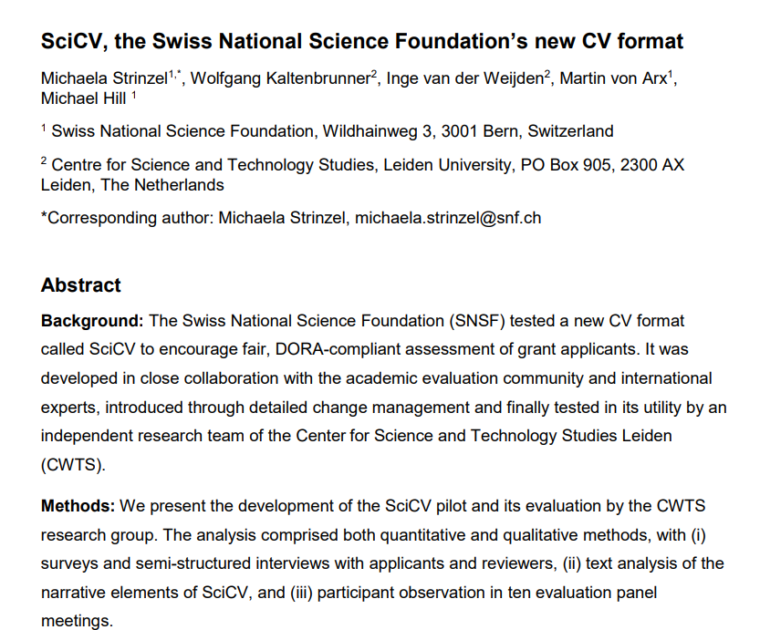

The Swiss National Science Foundation is testing a structured narrative CV format called ‘SciCV’ to increase consistency in decision-making for its grant applications.
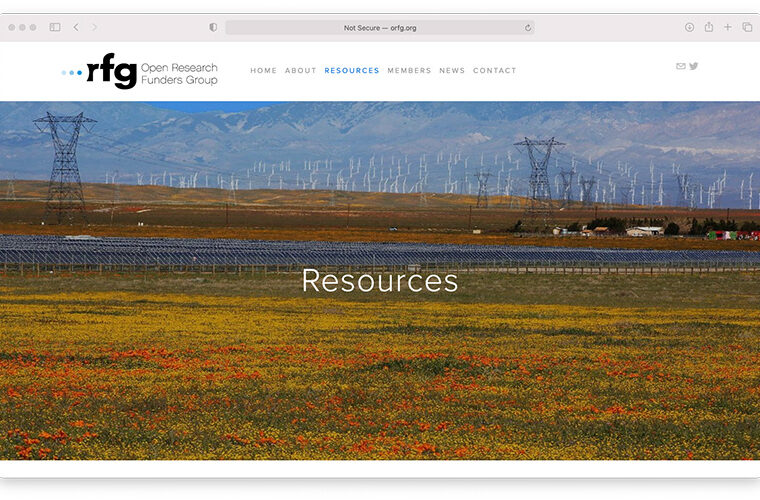
The ORFG released guidance for funders called, Incentivizing the sharing of research outputs through research assessment: a funder implementation blueprint.
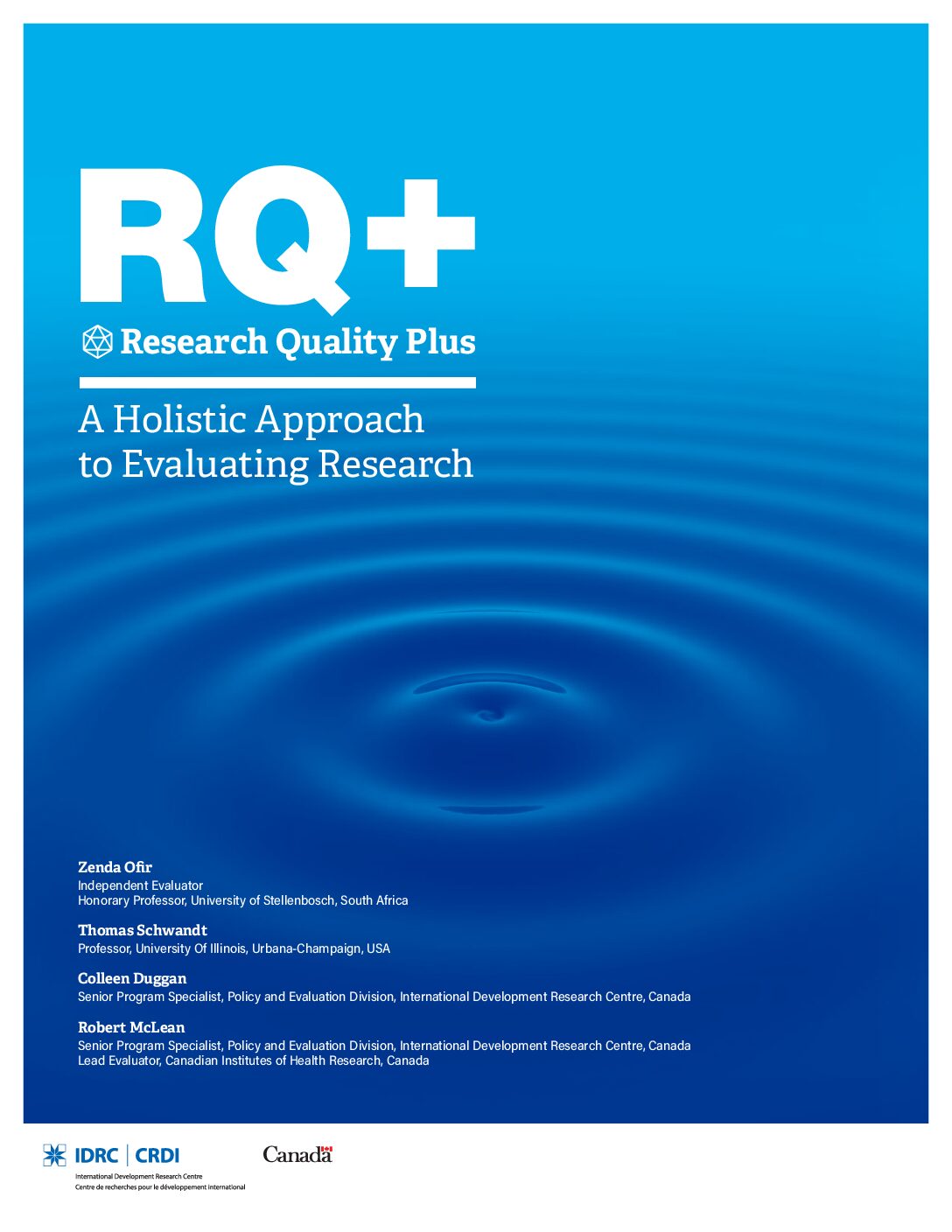
The IDRC in Canada developed a tool called Research Quality Plus (RQ+) to assess applied and translational research.
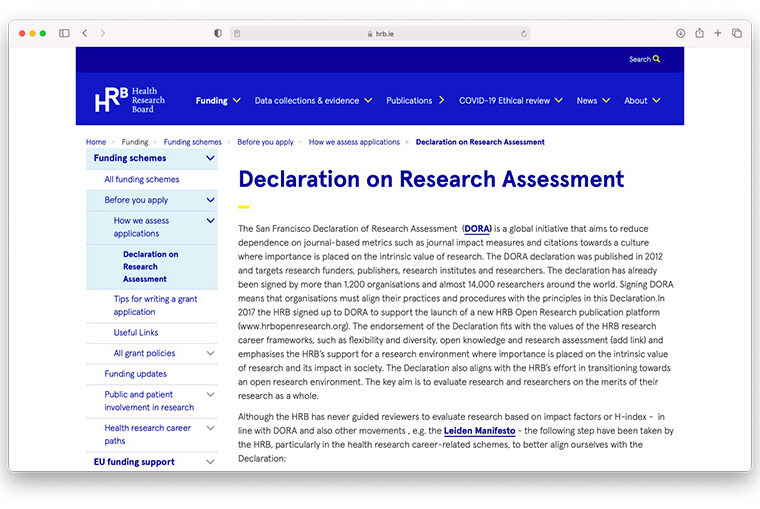
The Health Research Board (HRB) has taken several actions since 2016 to implement DORA’s principles in its grant review process.
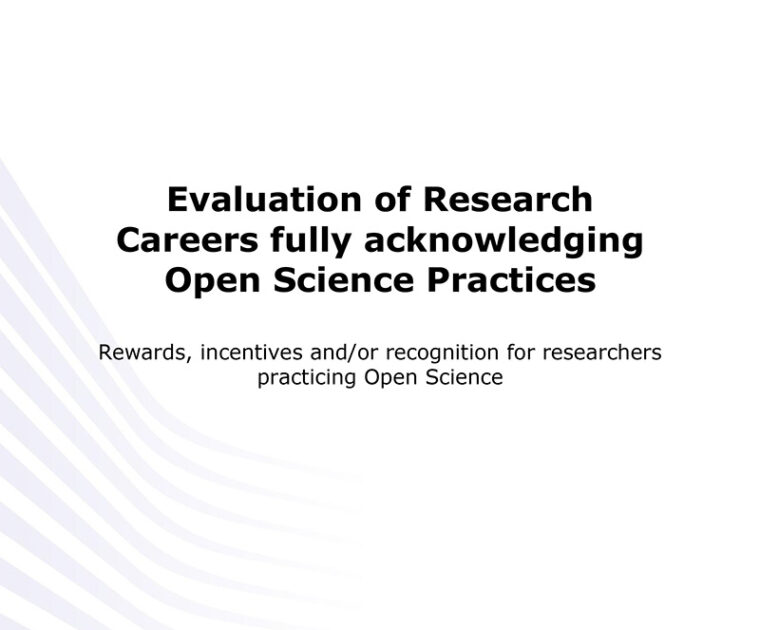
Evaluation of Research Careers fully Acknowledging Open Science Practices, a report released by the European Commission in 2017, recognizes the emerging Open Science movement creates an opportunity to develop an evaluation system for hiring and promotion that is focused on the equal treatment of applicants.
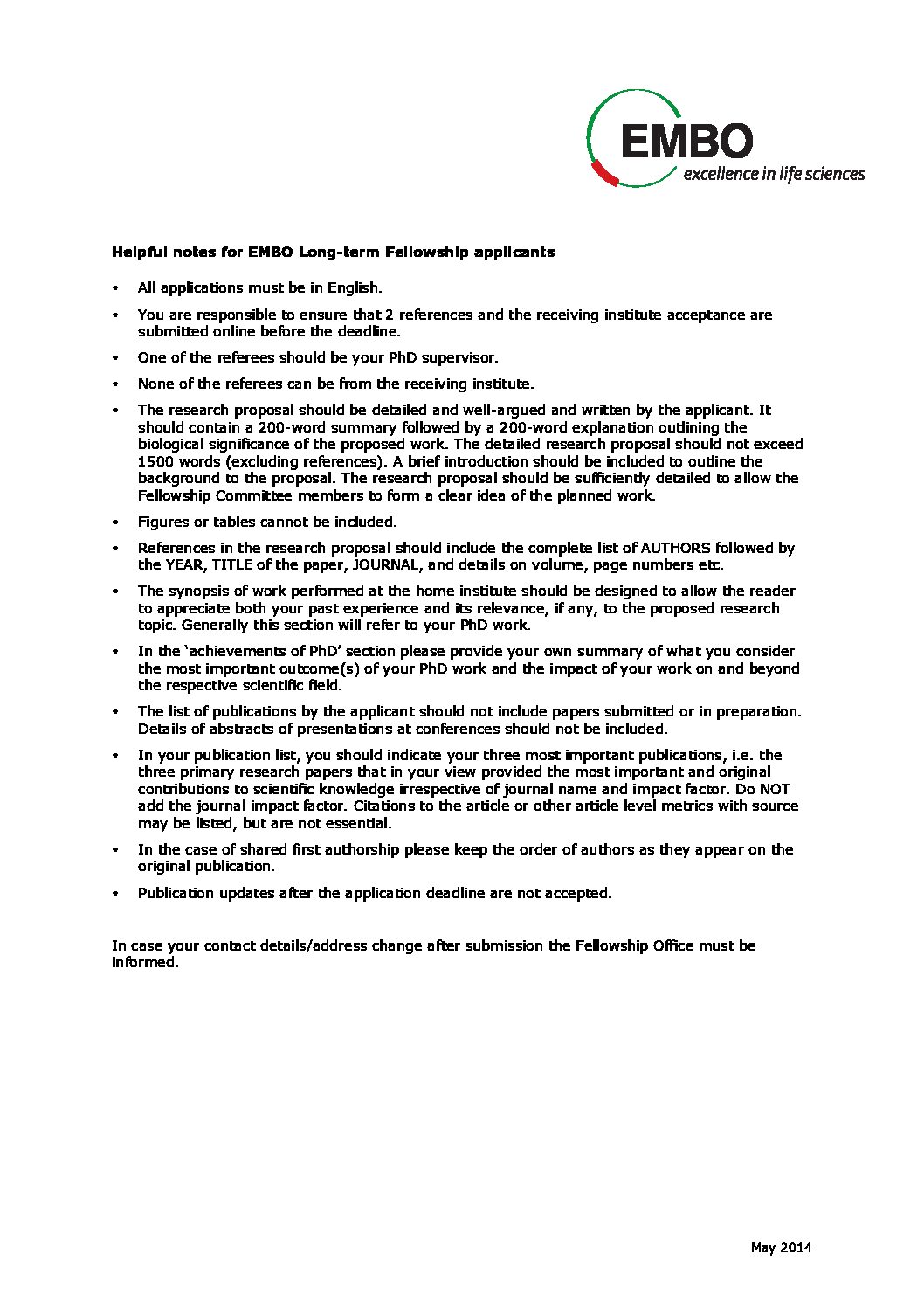
The application process for EMBO Long-Term Fellowships emphasizes the most important outcomes and impact of the applicant’s work rather than where it is published and specifically states that journal impact factors should not be provided.
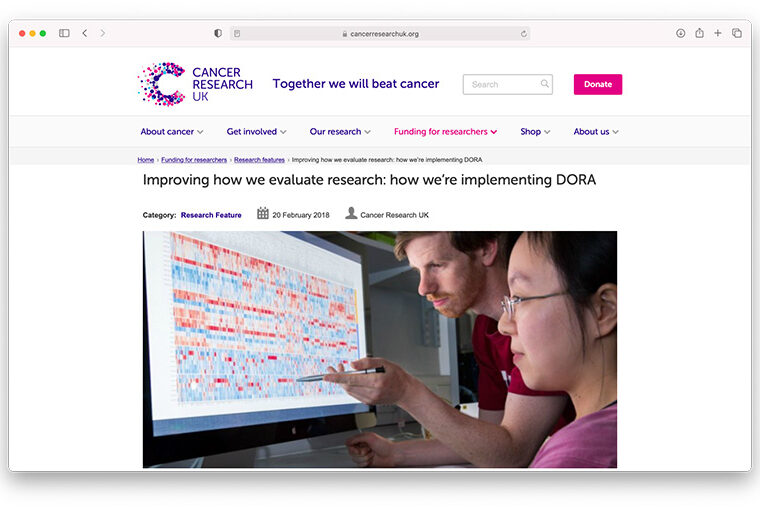
CRUK recognizes value from all outputs of research, including publications. CRUK has modified its grant application process to ask candidates to describe the significance and impact of 3-5 key research achievements, which can include preprints, training delivered, contribution to consortia, patents, and sharing of key datasets, software, novel assays and reagents, and research publications.
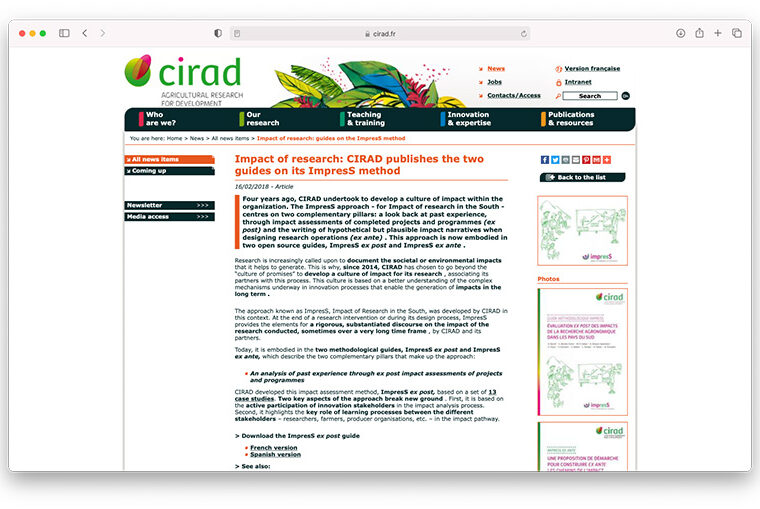
CIRAD developed the ImpresS method to assess the environmental and societal impact its research.
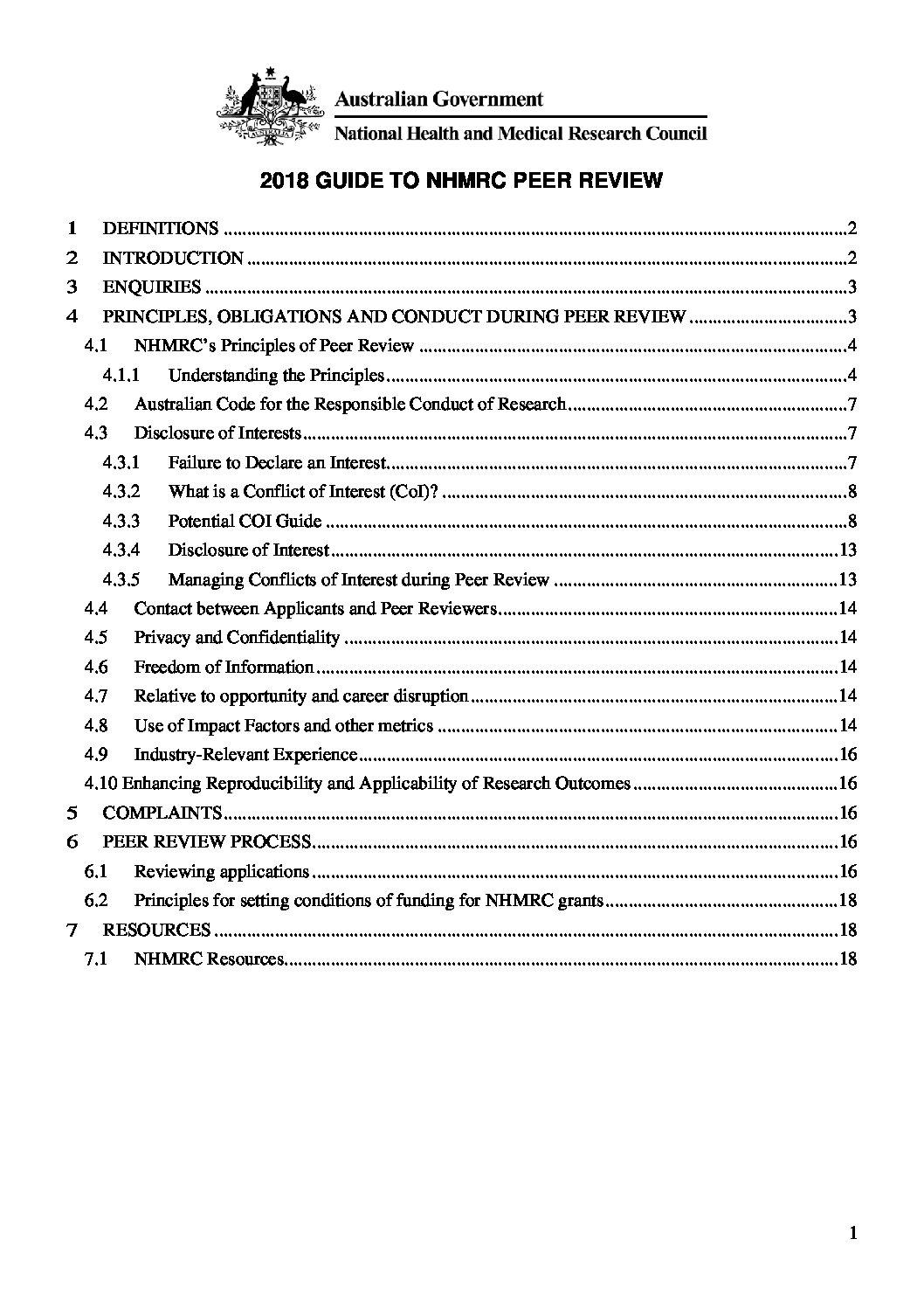
The NHMRC guide for peer review instructs assessors not to rely on the Journal Impact Factor when making judgments.
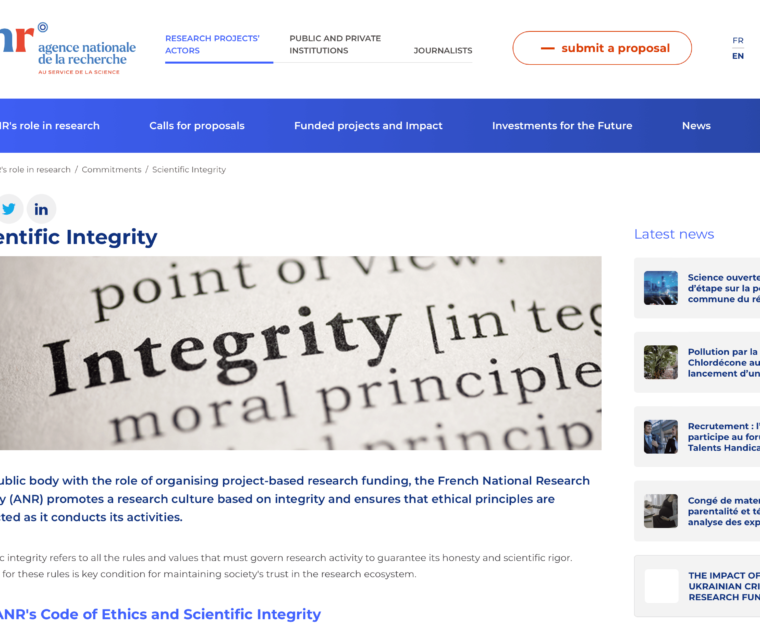
Applicants understand how funding decisions are made, because the Agency openly shares a general summary of its decision-making process on their website written in English and French.